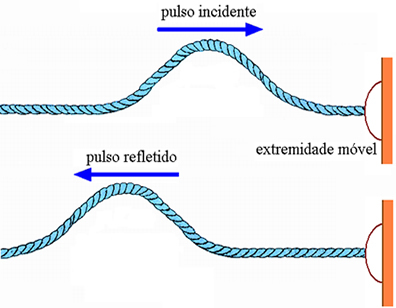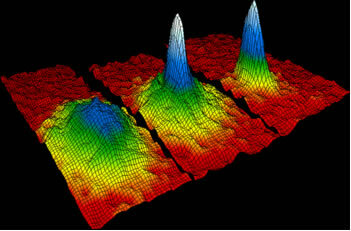In the same way we define reflection in the study of optics, we can say that a wave undergoes reflection when, propagating in a given medium, it hits the separation interface with another medium, propagating again in the original medium.
If a wave, propagating along a string, hits one of its ends, it will be reflected. When the pulse reaches a fixed extreme, unable to oscillate, it is observed that the reflected pulse has the opposite orientation to the incident pulse: we say that the pulse reflected with phase inversion. See the figure above.
This is because the end, being fixed, reacts on the string with a force F of the same module as the force exerted by the rope on it (law of action and reaction). In the case of the figure below, as the end is free, there is no exchange of forces between it and the rope, thus, a reflection without phase inversion.
Do not stop now... There's more after the advertising ;)

We have to be aware that, as the propagation speed of this wave is a function of the material medium in which it propagates, the incident and reflected pulses have velocities of the same module. Therefore, the wave velocity is independent of the source that produces it, its frequency or the wavelength, although it can be obtained, in any situation, by the relation
v = λ. f.
By Domitiano Marques
Graduated in Physics
Would you like to reference this text in a school or academic work? Look:
SILVA, Domitiano Correa Marques da. "Wave reflection on a string"; Brazil School. Available in: https://brasilescola.uol.com.br/fisica/reflexao-onda-uma-corda.htm. Accessed on June 27, 2021.

